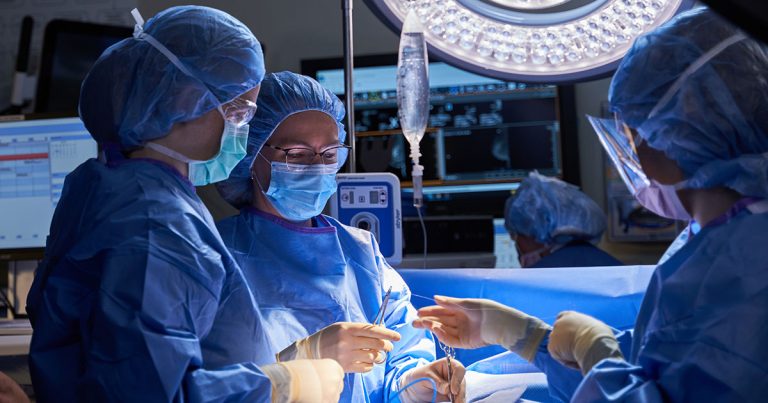
Surgery for the removal of cancer is a key step in the treatment process. Its aim is to remove tumors, relieve symptoms, or diagnose the disease. Depending on the type and stage of cancer, surgery might be combined with treatments like chemotherapy or radiation. It’s important to discuss with your doctor how surgery fits into your overall treatment plan and to make sure you are prepared for the process and potential outcomes.
Preparing for Surgery
Preparation for cancer surgery involves several steps.
- Blood tests, imaging scans, or biopsies may be required.
- You might need to stop certain medications or adjust your diet before the surgery to prevent any complications of reactions with the anesthesia.
- Many patients find it helpful to seek counseling or to talk and ask more questions to their doctor to ease anxiety.
The surgical team
The surgical team that will perform your surgery will consist of a team of specialists who will take care of different aspects of the procedure. They are:
- Surgeon: Performs the procedure and explains its goals.
- Anesthesiologist: Administers anesthesia during the surgery and monitors your vital signs such as heart rate and blood pressure.
- Surgical nurse: Prepares the instruments and assists the surgeon throughout the procedure.
- Surgical Assistant: assists the surgeon by holding instruments, suturing, or retracting the tissue.
- Nursing Staff: Assists during surgery and ensures post-operative care.
Other specialists such as a pathologist, or a radiologist will be called in based on the requirement of the procedure.
What happens on the day of the surgery?
On the day of surgery, you’ll likely follow these steps:
- Admission.
- Pre-Op Preparation: Change into surgical attire, and IV lines are inserted for fluids or medications.
- Surgery: The operation time varies based on complexity.
- Post-Op Recovery: You’ll be monitored in a recovery room for a few hours.
Types of cancer surgery
Cancer surgeries vary depending on the type and location of the tumor:
- Curative Surgery: Aims to remove the tumor entirely.
- Reconstructive Surgery: Restores the appearance or function of the organ(s) post-tumor removal surgery.
- Minimally Invasive Surgery: Uses techniques like laparoscopy for smaller incisions to remove tumors.
Pain management during and after surgery
Pain management is a priority during any form of surgery. It is especially important for cancer patients. The pain is managed by:
- Anesthesia during the surgery allows for a painless procedure.
- Painkillers, both oral and IV, are prescribed for a few days/weeks to make you feel less pain after the surgery and to allow everything to heal.
- Some hospitals also offer therapies such as acupuncture to manage post-operative discomfort.
Risks and complications to look out for
Like any medical procedure, cancer surgery comes with risks. Common complications include:
- Infection at the surgical site.
- Bleeding or blood clots.
- Slow wound healing.
Your surgeon will better make you understand these risks and also mention the signs to look out for before it gets worse.
Recovery and rehabilitation after surgery
The duration of the recovery process varies from person to person and is based on the procedure they had, but some of the common things are:
- Hospital stays may range from a day to a week.
- Physical therapy is recommended for regaining strength and mobility.
- Regular follow-ups with the doctor to ensure you’re healing well and to address any complications.
Post-surgery, it’s essential to look out for signs of complications. Contact your doctor if you notice:
- High fever or chills.
- Persistent pain or swelling.
- Difficulty breathing or unusual discharge from the surgical site.
Delhi has emerged as a leading destination for cancer treatment in India. The city has reputed hospitals that offer modern surgical techniques with experienced doctors with advanced diagnostic tools to personalized recovery plans. If you’re considering treatment, the best cancer hospital in Delhi ensures access to expert surgeons and facilities.


